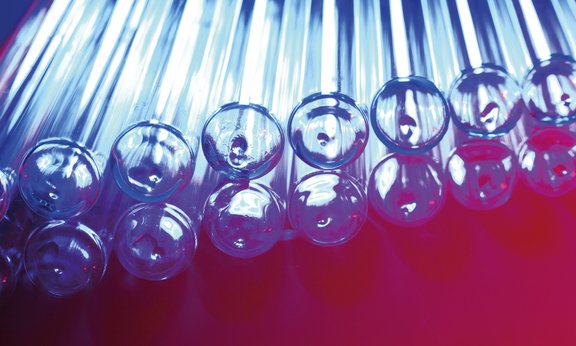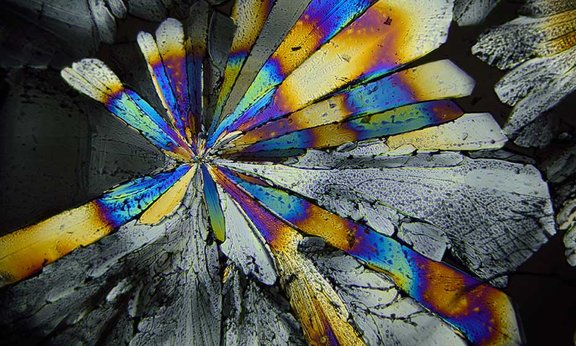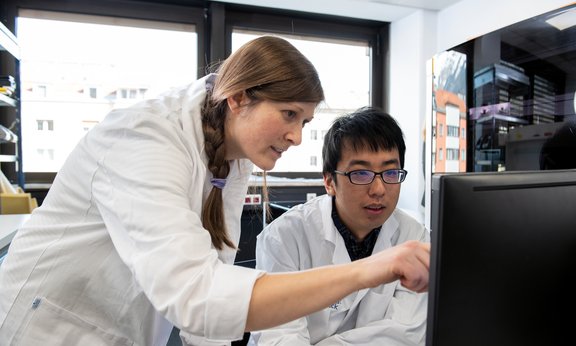Bachelor’s Programme Chemistry
Would you like to carry out chemical experiments, apply chemical methods and understand matter physically and chemically?
The Bachelor’s Degree Programme in Chemistry prepares the students for occupations in the the field of chemistry. This programme is a pre-requisite for enrolling into the Master’s Degree Programme in Chemistry and other related disciplines.
Please note: the language of instruction for this programme is German.
Study Code
C 033 662
FAQ
The study programme imparts basic and advanced professional competences for scientific work in the field of chemistry. Graduates possess the necessary knowledge and critical understanding of theories and principles of chemistry and related fields of science.
They are able to identify, analyse and solve complex chemical problems and apply theoretical concepts to practical situations. They understand chemical systems at the molecular level and are able to conduct scientific experiments and research projects. They can analyse, interpret and present data and results. They are able to elaborate, assess and apply further scientific developments in the field of chemistry.
(1) Subject-specific qualifications
- The study programme imparts basic and advanced professional competences for scientific work in the field of chemistry.
- Graduates possess the necessary knowledge and critical understanding of theories and principles of chemistry and related fields of science.
- They are able to identify, analyse and solve complex chemical problems and apply theoretical concepts to practical situations.
- They understand chemical systems at the molecular level and are able to conduct scientific experiments and research projects.
- They can analyse, interpret and present data and results.
- They are able to elaborate, assess and apply further scientific developments in the field of chemistry.
(2) General qualifications
- In addition to subject-specific skills, students also acquire general key competences, including the ability to work in a team, oral and written communication skills, interdisciplinary problem solving and time management.
- They acquire a sense of responsibility for the benefits and risks of scientific research and its application.
(3) Professional qualifications
- The Bachelor's Programme in Chemistry aims to prepare students for a professional career as chemists.
- Graduates are qualified to work in university and non-university (research) institutions in the field of chemistry.
- The bachelor's programme is the basis for further professional development in research, technology, industry, the environment and chemical-relevant official fields of activity.
- Graduates of the study programme are able to apply these acquired competences across disciplines.
- The programme is designed according to current academic standards and offers a competitive professional qualification.
(4) The Bachelor’s Programme in Chemistry is the basis for a subsequent Master's Programme in Chemistry or related master's degree programmes.
The Bachelor's Programme in Chemistry aims to prepare students for a professional career as chemists. Graduates are qualified to work in university and non-university (research) institutions in the field of chemistry. The bachelor's programme is the basis for further professional development in research, technology, industry, the environment and chemical-relevant official fields of activity.
Graduates of the study programme are able to apply these acquired competences across disciplines. The programme is designed according to current academic standards and offers a competitive professional qualification.
Graduates tracking: Shows which occupational fields students enter after graduation
Faculty of Chemistry and Pharmacy Examination Office Information for students with disabilities
Curriculum
From the field
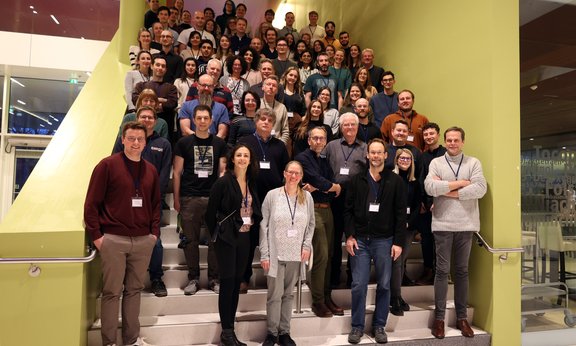
SFB-Tagung in Innsbruck
Ende Januar trafen sich die Mitglieder des FWF-Spezialforschungsbereichs RNA-DECO in Innsbruck. Die Förderung für das österreichweite Forschungsnetzwerk wurde erst vor kurzem um vier weitere Jahre verlängert.
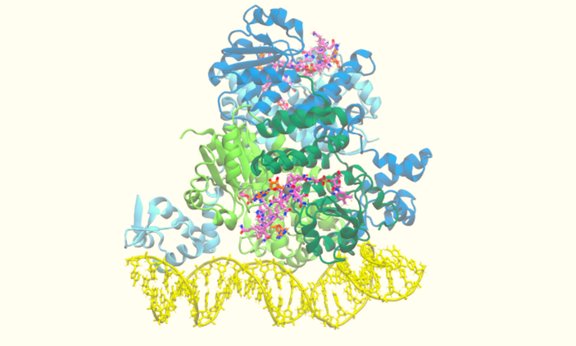
Antivitamin blockiert Lichtschutz von Bakterien
Bakterien verfügen über zelluläre Mechanismen, welche die Produktion von Pigmenten zum Schutz vor Sonnenstrahlen steuern. Überraschenderweise fungiert Coenzym B12 dabei als Lichtsensor. Ein Antivitamin B12 aus der Forschung von Bernhard Kräutler vom Institut für Organische Chemie erlaubt, wie eine aktuelle Studie zeigt, diese bakterielle Photoregulation zu blockieren, womit sich das Wachstum von Bakterien inhibieren lässt.

Festkörperchemie in Obergurgl
Das 6. Festkörperchemie-Seminar im Universitätszentrum Obergurgl war ein gelungenes Zusammentreffen nach dreijähriger Coronapause. Vom 25. bis 28. Januar kamen die Arbeitsgruppen Huppertz, Heymann und Schwartz aus Innsbruck sowie die Gruppen Schnick und Johrendt aus München zusammen, um über die aktuellen Forschungsergebnisse der Festkörperchemie und Materialforschung zu diskutieren.
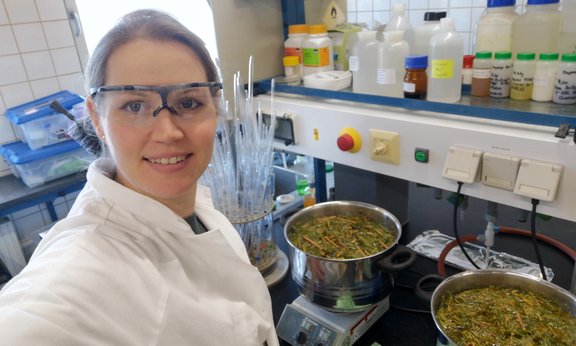
Druckfarben aus Pflanzen
Auf dem Weg zur Kreislaufwirtschaft entwickelt Judith Deriu im Labor am Forschungsinstitut für Textilchemie und Textilphysik in Dornbirn natürliche Farbpigmente aus Pflanzen und darauf basierende, nachhaltige Druckfarben für die Industrie.

